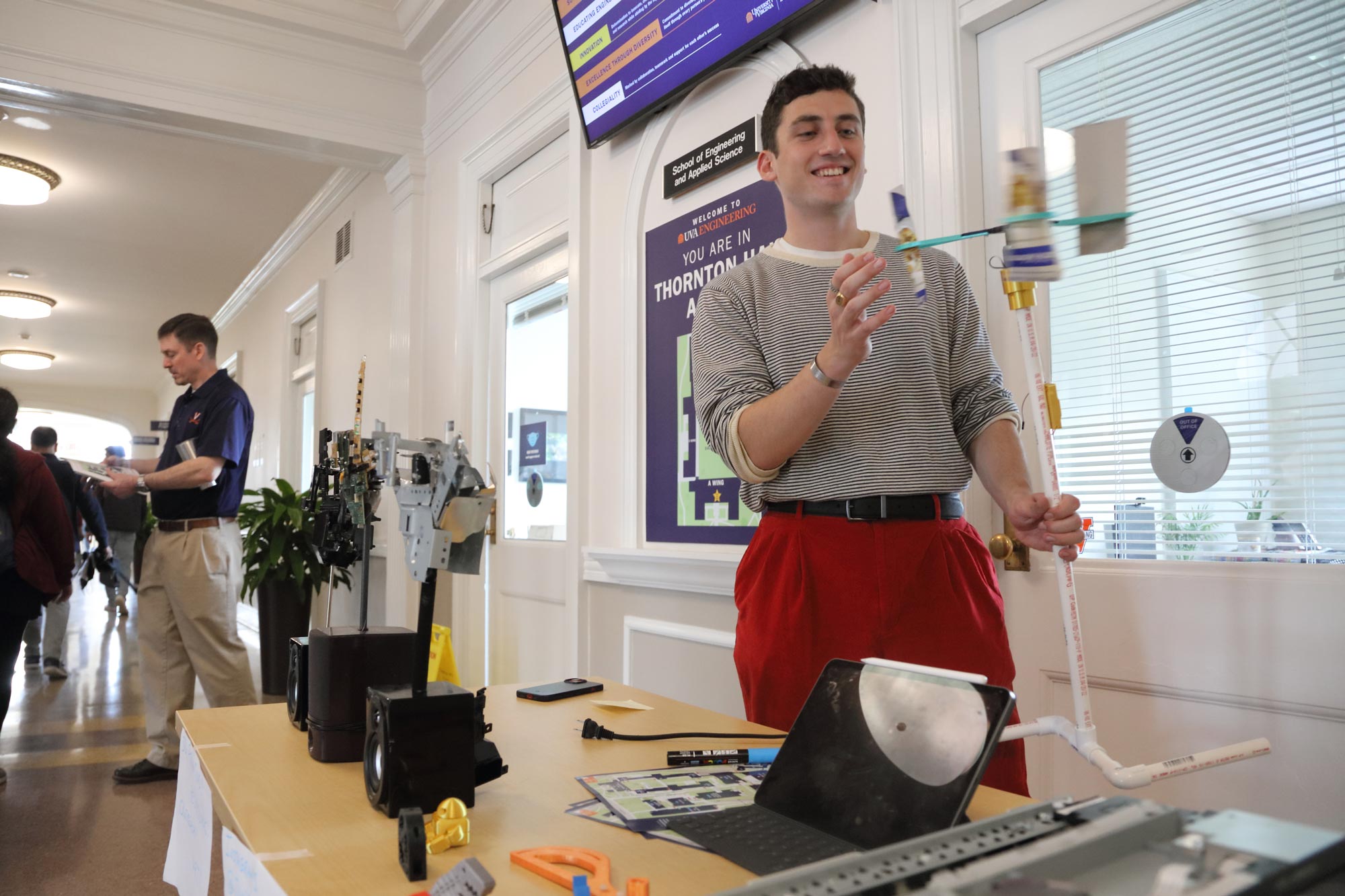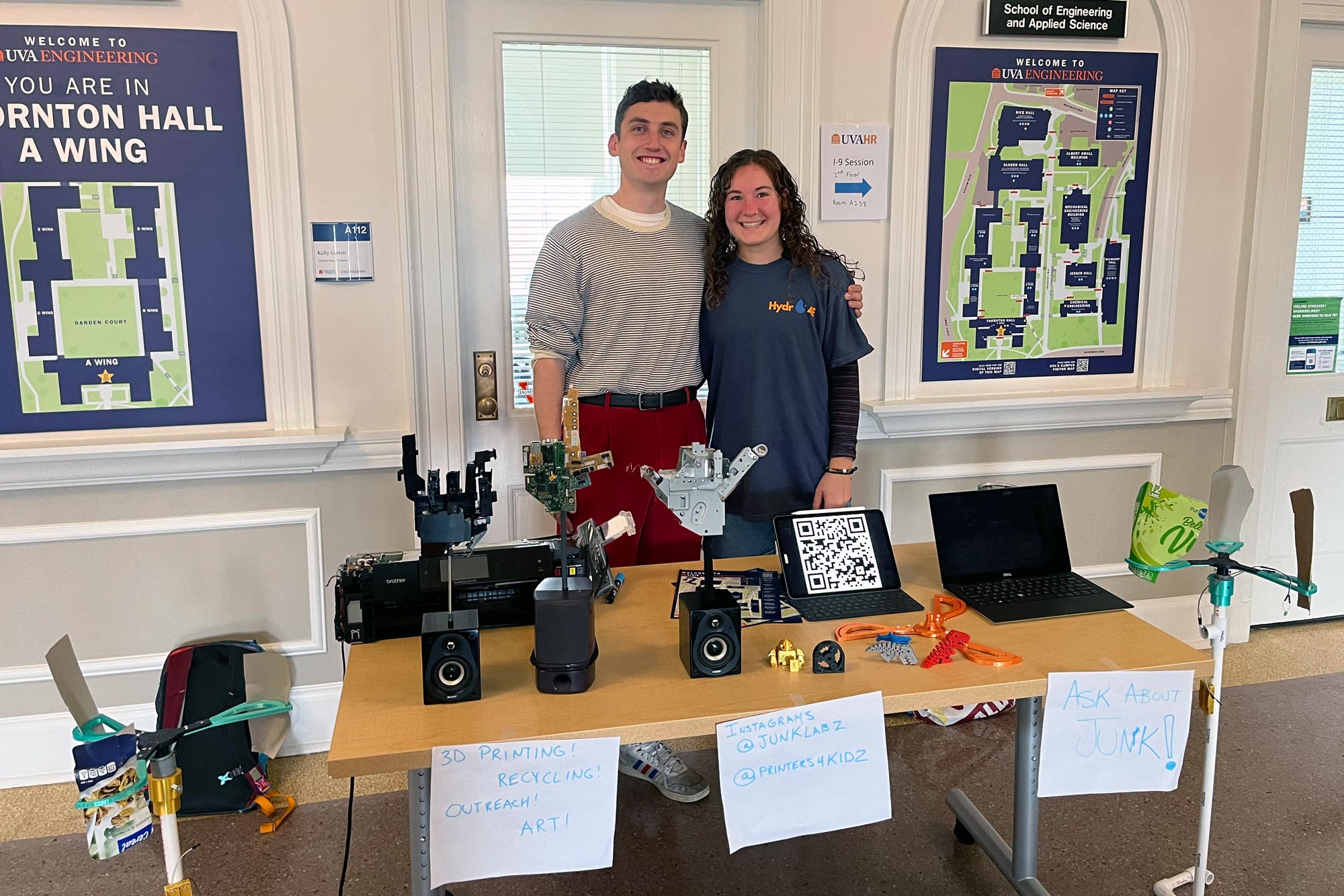A University of Virginia doctoral student’s labor-of-love side project is creating mini-wind turbine kits from UVA’s tech waste and offering them for free to local schools.
Zack Landsman, who is studying systems engineering in the School of Engineering and Applied Science, is the founder of Printers 4 Kidz, which compiles the STEM kits by repurposing electronics equipment components, such as those found in printers, and recycling plastics from UVA Health.
“I wanted to make STEM kits that were going to be reused, that could be easily disassembled, and also recycled if they’re broken,” he said.
The Jefferson Trust was so excited by the windy win-win that they awarded the ingenious idea a $30,000 grant earlier this academic year. The trust provides funding to students, faculty and staff members with innovative ideas for improving the University community.
Landsman is a Double-Hoo, having majored as an undergraduate in biomedical engineering and cognitive science with a minor in technological entrepreneurship.
It was as a volunteer at the similarly named Computers4Kids, a local mentorship program for youth focused on science, technology, engineering, arts and math, that first got Landsman thinking about offering the kits.
Recycled materials make up all the parts needed.






